WHAT IT’S LIKE GOING TO SCHOOL HIGH IN THE HIMALAYAS
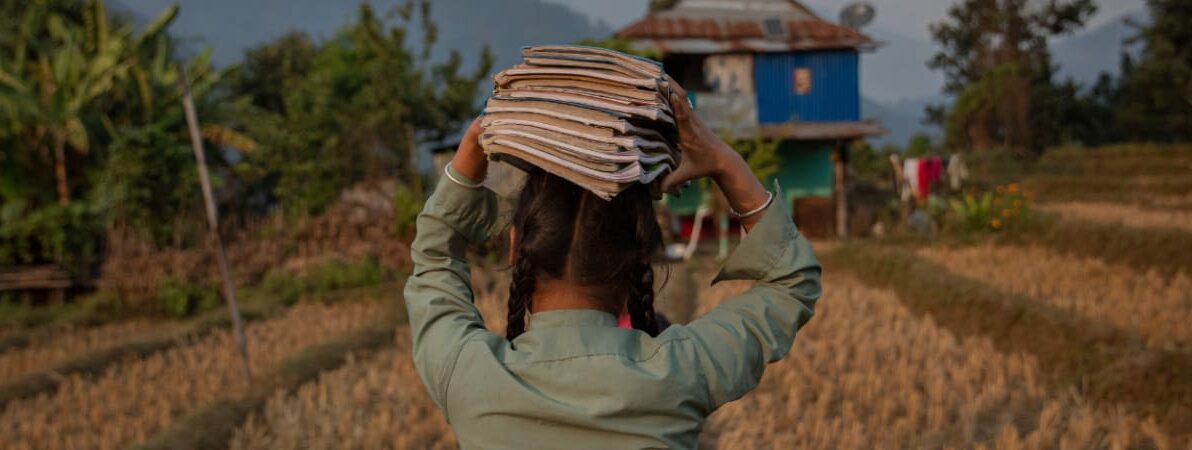
May 5, 2021
United World Schools
7 mins
Come with us on a journey to the most remote regions of Nepal. In these areas, education is the key to helping children to thrive and live Happily Ever Smarter.
Read all about the life-changing education programmes we’re leading in Nepal, and how the UK government is supporting our work through their Aid Match funding, doubling every donation given between 29th April – 29th July 2021. Together, we can reach even more primary school aged children in Nepal and across Asia with the education they deserve.
What is the education system in Nepal?
Nepal is one of the poorest countries in the world, with an economy largely dependent on aid and tourism. As a result, government investment in education has been limited, tending only to reach communities based along main roads. However, many remote villages can’t be reached by road. This means that thousands of children from remote and marginalised communities are excluded from education. There are 101,223 children out of school in Nepal (UNESCO, 2017) with many children dropping out before they complete their primary education (retention rate 73.6% – UNESCO, 2016).
Our Happily Ever Smarter campaign will be providing education for children in the regions of Gulmi, Sankhuwasabha, Taplejung, Morang and Chitwan and Rupandehi Districts of Nepal, where it is estimated that there are more than 67,530 children of primary-school-age out of school. Across these regions, less than a third of the population completes primary education, and the vast majority of those who do are from urban areas.
United World Schools (UWS) has been working in the Sankhuwasabha, [an area affected by the Civil War in Nepal 1996-2006] and Gulmi Districts since 2016. During this time, we have supported over 35 communities to access education and have been recognised at a regional level for our successes. We also plan to start supporting communities in areas like Chitwan, where marginalized groups like the Muslims, Musahar and Tharu have been deprived of education.
Although Nepal has made progress in terms of access to education in recent years, very few of these improvements have reached remote and marginalised regions.
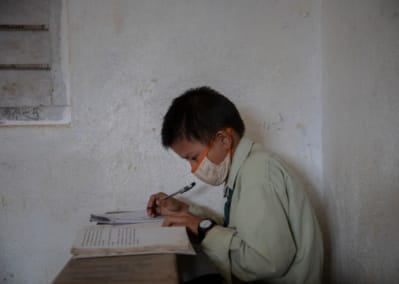
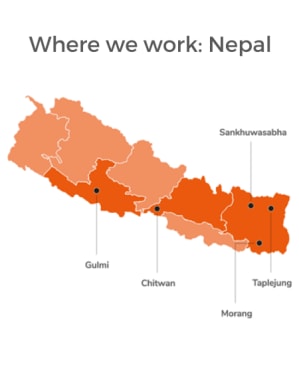
An education crisis in rural Nepal
In rural, remote areas of Nepal, as few as 10% of the population are able to read and write. Schools are often so far away that it’s dangerous for primary-school-age children to walk there, and there isn’t always an understanding of the importance of education in their communities. In poorer communities, children often work in the home or the fields to help make ends meet, which can keep them trapped in a preventable cycle of poverty and illiteracy.
“It makes me very tired cutting the grass,” says 11-year-old Soneeya (pictured). “I feel happy to now see the [UWS] school being built in my village. I’ll be so glad to study rather than working.”
Covid-19 has exacerbated this education crisis, making it even harder to reach these children. We all know how difficult it’s been for children here in the UK to learn during the pandemic; but for children in extremely remote areas with no technology, it has been almost impossible.
Despite these challenges, our incredible teams in Nepal, Cambodia and Myanmar worked hard to reach 148,000 people with essential information about coronavirus and advice on how to prevent the spread. Our distance learning programmes reached over 40,000 children including lessons delivered via loudspeaker and radio. However, the culture of education in many areas is new and fragile. The UN estimates that 24 million children worldwide may never return to school after the pandemic, falling victim to early marriage or a lifetime of poverty.
Children from remote, ethnic minority communities are disproportionately affected – especially girls, many of whom have never had the chance to go to school. The girls who do attend school are at higher risk of dropping out by the time they reach their teens, due to the risk of child marriage and social stigma surrounding menstruation. According to data from the Nepal Demographic and Health Survey, 40% of girls in Nepal are married before they turn 18 – and this figure is likely to be higher in rural areas.
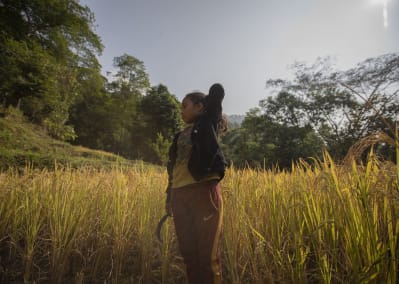
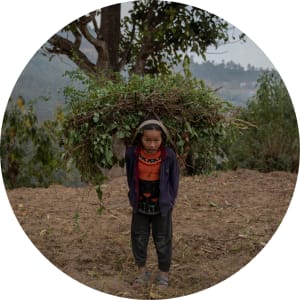
Changing the story for children in rural Nepal
At United World Schools, we’re working to transform children’s futures and entire communities in Nepal and across Asia through our life-changing education model. Through building schools and investing in local communities, we will help thousands of primary-school-age children into education.
We train local teachers, empower students and parents, provide health and sanitation support and partner with regional and national governments. We provide ongoing support until every school is self-sustaining and we are confident in the local authority’s ability to maintain it – meaning that each school will continue to provide a life-changing education for generations to come.
In just 12 years, United World Schools has transformed hundreds of communities and thousands of children’s lives. We’ve reached 43,000 children in Nepal, Myanmar and Cambodia with a life-changing education – and with your support, we can help even more children live Happily Ever Smarter.
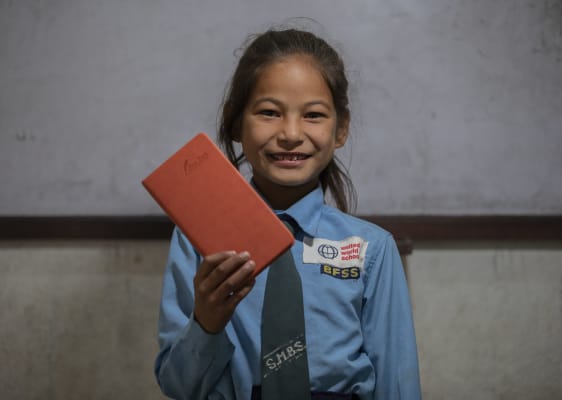
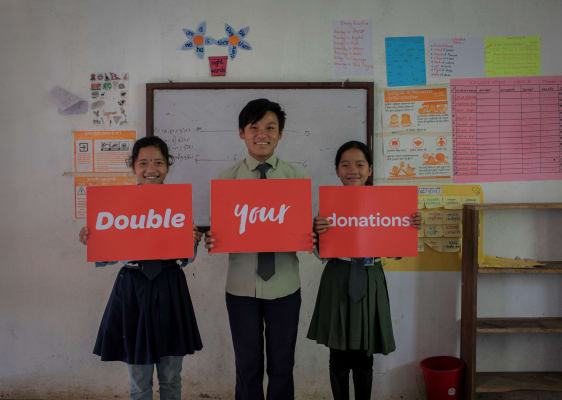
“I used to dream of going to school and now I can!”
– 11 year old Kanchi
“I learn a lot of new and interesting things everyday. My favourite subject is Maths and I feel great when I’m able to help my friends with their studies too. I don’t like to miss even a single day of school. One day I’d like to become a teacher – I want to earn a good living and give my grandmother a comfortable life.”
11 year old Kanchi (pictured), who attends UWS Helawubesi School in the Himalayan mountains of Nepal.
Between 29 April and 29 July 2021, for every £1 that was given to United World Schools by a UK donor, the UK government matched this by giving £1!
Donations will help us continue to reach thousands of underprivileged children like Kanchi with a transformative education across Asia.
Match funding from the UK government will be used to help 8,505 out-of-school children in some of the most remote areas in Nepal to go to primary school for the first time in their lives.
Together, with your donations and match funding from the UK government, we’re aiming to reach over 10,000 children with education, train and employ 375 teachers and build 70 new schools in Nepal and across Asia. With the pandemic exacerbating the education crisis and schools across Nepal closed, this is needed more than ever.
Get Involved
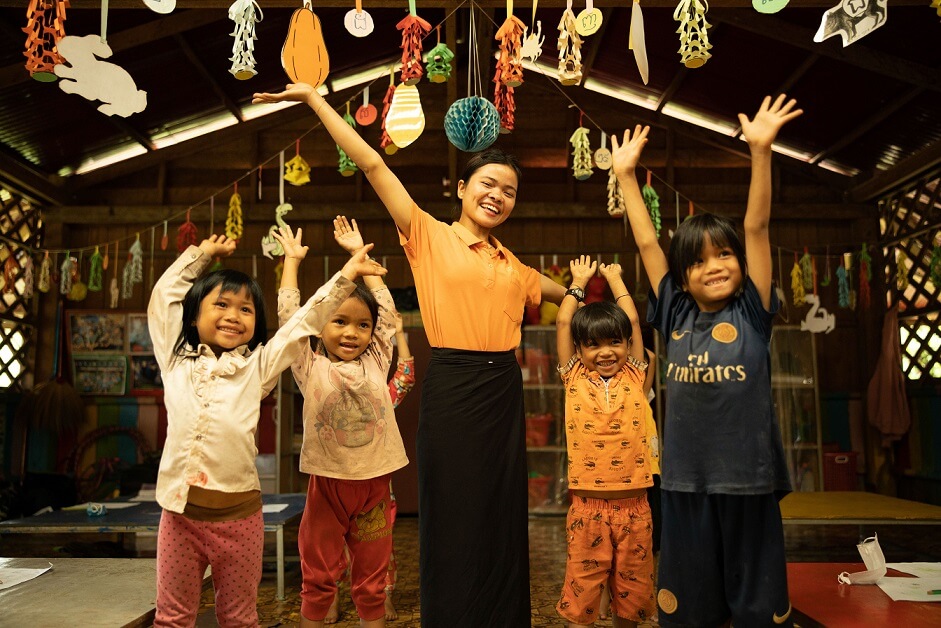
The future needs to change. You can change it
Join the movement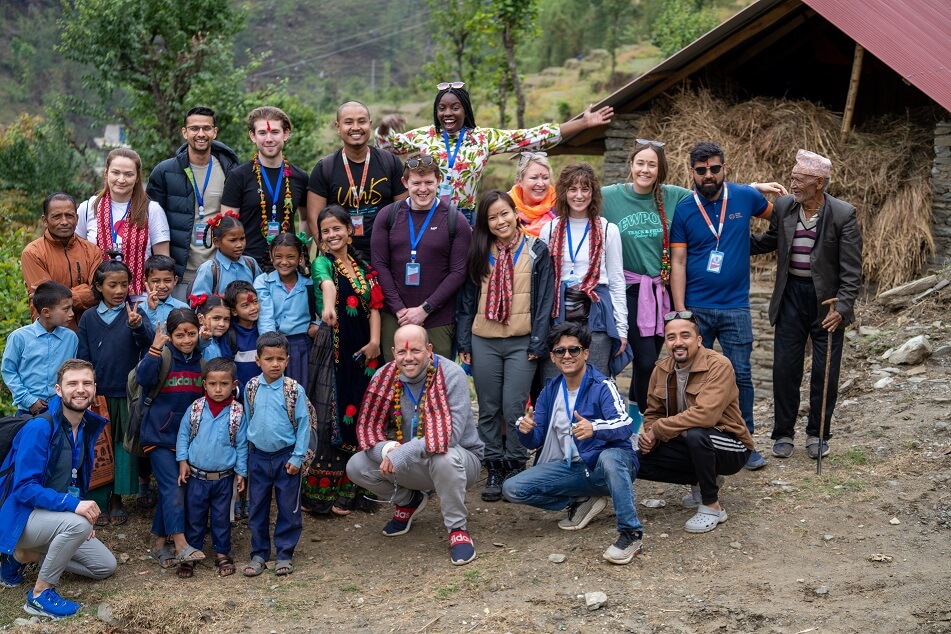
The world's greatest challenge requires the planet's greatest brands.
Become a brand partner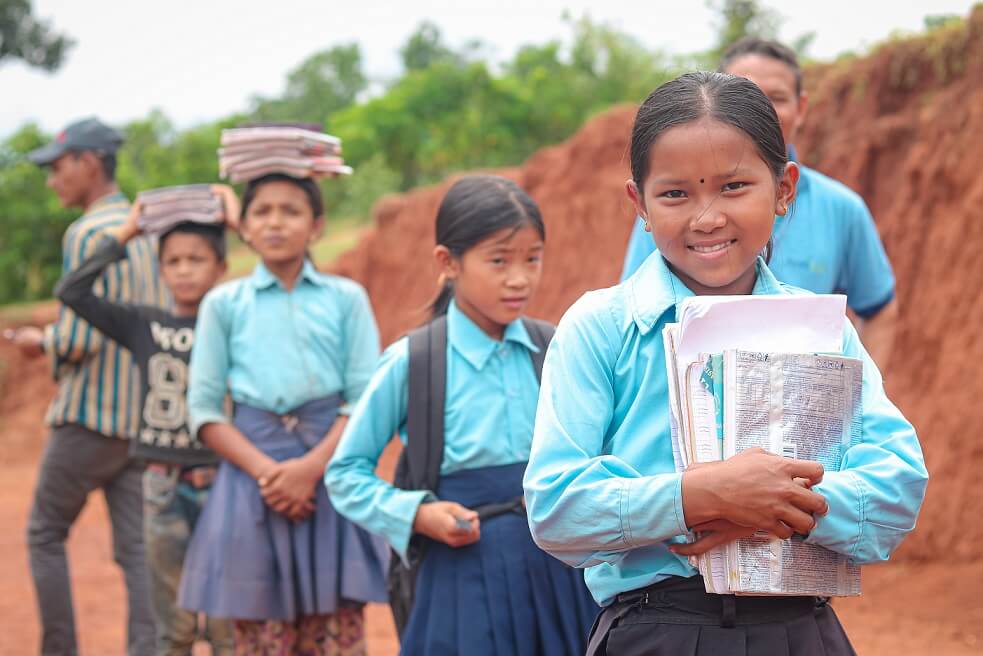
Got some spare change? Then you can change the future.
Give a philanthropic gift





